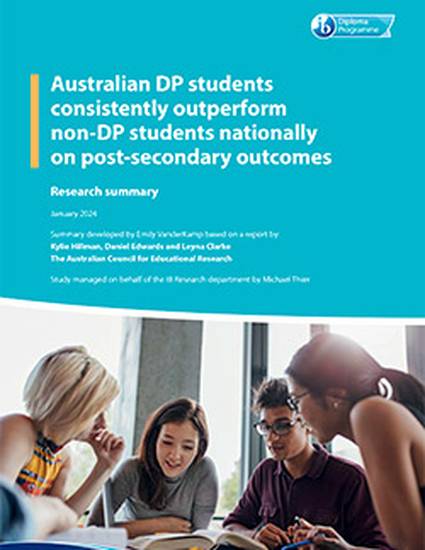
This study compares the university outcomes of students who completed the International Baccalaureate (IB) Diploma Programme (DP) in Australia compared to non-DP students nationally. The findings are based on population-level data for all students who applied to and entered universities in Australia between 2013 and 2018. To address differences in DP and non-DP student characteristics, the researchers further examined outcomes by groups within the populations that are more alike, for example, by gender and socio-economic status. Across all cohorts, DP students gain offers of university admission, continue to their second year of study, and complete university for all check points examined within the study (4 years, 6 years and 9 years after commencement) at significantly higher rates than non-DP students. Additionally, completing the DP appears to offer an advantage in university completion rates for students from a range of socio-economic backgrounds.
© International Baccalaureate Organization, 2024
